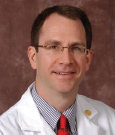This combination shows good activity in the difficult-to-treat second-line setting of NSCLC,” said Gregory A. Masters, MD, FASCO, about the results of the REVEL study reported at the ASCO Annual Meeting. Dr. Masters, who is Attending Physician at the Helen F. Graham Cancer Center and Research Institute, Newark, Delaware, moderated a press conference where these data were presented.
Dr. Masters was asked whether this treatment represents true “value” at the press conference, since it improved survival by a modest 1.4 months and will probably be costly. These data must also be viewed in the context of ASCO’s recent position paper on meaningful outcomes for clinical trial endpoints. As an example, they have stated that a meaningful improvement in overall survival in the first-line setting for advanced NSCLC should be at least 2.5 months (squamous) to 3.25 months (non-squamous). ASCO did not comment on what improvement would be meaningful in the second-line setting.
Also, it is important to point out that the paper by Ellis et al was intended to “encourage patients and investigators to demand more from clinical trials” and to “help guide the development of definitive, randomized phase III trials”—rather than being intended to decide what we do with trial results already completed.
Dr. Masters replied that investigators of clinical trials are focusing on developing more effective therapies based on improved science and targeting therapies to mechanisms of tumor growth and progression.
“Progress is slow and stepwise, and we build one step at a time. The cumulative progress is what we find encouraging. A study is only one piece of a puzzle. A study like REVEL may not change the way we treat NSCLC, but it can influence our design of further studies,” he said.
“Ramucirumab is not yet available for treatment of NSCLC. Our understanding of using targeted drugs will build on our ability to improve treatment for patients. We want to balance benefit with cost, and figure out how best to treat patients,” Dr. Masters said.
Three Key Considerations
Don S. Dizon, MD, FACP, a medical oncologist and the Director of the Oncology Sexual Health Clinic at Massachusetts General Hospital, Boston, weighed in on the discussion of “value” at the press briefing. “The 3-month improvement in overall survival is a good threshold for the first-line setting in advanced NSCLC, and it provides guidance, but we don’t consider that as the be-all and end-all of every scientific presentation. As with the results of any investigational treatment, we should consider three key things: efficacy, toxicity, and cost.”
Commenting on the trial results, Roy S. Herbst, MD, PhD, Ensign Professor of Medicine and Chief of Medical Oncology at Yale Cancer Center, New Haven, Connecticut, said he was impressed by the activity of the combination in both squamous and adenocarcinoma subtypes and by the toxicity profile of the combination.
“It is hard to give other drugs with docetaxel. The study showed a signal of improved overall and progression-free survival without patient selection for the combination of ramucirumab plus docetaxel. The results are not a home run, but I would say they are a single. Right now, in squamous NSCLC cancer, we need a few doubles. We need to get men and women with advanced lung cancer on base,” Dr. Herbst said. “Further studies to identify a biomarker are clearly needed,” Dr. Herbst added. ■
Disclosure: Drs. Masters, Dizon, and Herbst reported no potential conflicts of interest.


